South Sudan is a great country with significant business opportunities and we would like to help you in the right direction with local government officials to create a win-win capacity for all businesses
We will work with you very closely engaging our professional legal team such as The Ancestral Advocates and local government officials to monitor your interests as well as the interests of South Sudanese people.
We recommend you to consult with us before making a decision for your business interest in South Sudan.
Business Opportunities
Most of South Sudan’s mineral and oil wealth is as yet unexploited.
Several international investors are already operating in the South Sudan’s largest export sector. With independence (and the lifting of sanctions), new opportunities arise for investors to expand oil exploration and production, as well as prospect and develop other mineral resources:
- Develop local refining and fuel storage capacity
- Oil & Gas exploration and production: less than 50% of suspected oil reserves currently exploited
- Develop Oil & Gas refineries and oil pipelines connecting neighbor countries (Kenya, Uganda, Ethiopia)
Geological studies and prospecting, have uncovered that South Sudan has considerable deposits of various mineral ferrous and non ferrous such as gold, iron, uranium, copper, limestone, marble, granite, chromium, zinc, tungsten, mica and magnetite; as well as gemstones, petroleum and other chemicals.
Business environment
Investment protection
The Investment Promotion Act of South Sudan of 2011 provides investors with the following investor guarantees:
- Non-Discrimination: Both local and foreign investors can own and operate businesses in any sector of the economy in South Sudan, except those sectors identified as areas where national investors hold priority such as Postal Services, Co-operative services and car hire and taxi operations.
- Guarantees against Expropriation: The GoSS shall not nationalize any enterprise, nor shall any investor be compelled whether by law or any other means to cede any part of their capital. If there is an overriding public interest that can only be met by means of expropriation, the investor will be entitled to fair and just compensation without undue delay, and the investor has the right to have such compensation determined in the courts of law.
- Protection of Intellectual Property Rights: Intellectual property rights such as trademarks, copyrights and patents are protected and enforceable in accordance with international conventions to which Sudan is party.
- Access to Public Information: Investors have direct and open access to all laws and decisions of courts, other adjudicative bodies and to any information related to their investment.
- Repatriation of Capital Gains, Profits and Dividends: Investors have the right to freely repatriate their money in freely convertible currency, or dispose of it in a manner they deem fit, subject to tax and other lawful obligations.
- Dispute Resolution: An aggrieved investor will have recourse to the courts of South Sudan which have jurisdiction over business disputes. Parties to a dispute are also free to specify alternative dispute resolution mechanisms they may agree upon. Any investor in dispute with the Government of has recourse to internationally accepted dispute resolution mechanisms.
- Rights of Access to Public Information: Investors have direct and open access to all laws and decisions of courts and other bodies, and to any public information
Access to land
The Land & Investment Promotion Acts make clear provisions to enable investors to have access to land, while protecting local communities. Key Provisions:
Land Act provides for 3 types of land: public land, community land & private land:
- Private Land:
Non-citizens may acquire leaseholds up to 99 years
- Public Land:
- Investors may be allocated publicly-owned land by the National or State Governments, subject to the following conditions:
- Investor must obtain investment certificate from Ministry of Investment and provide appropriate financial and environmental guarantees
- Activity should contribute economically and socially to development of community; community must be consulted, and all affected parties must be compensated
- Leases up to 30 years for agriculture investments, renewable by mutual consent
- Leases up to 60 years for forestry investments, renewable by mutual consent
- Leases for mines and quarries for the life of the mine or quarry
- Community Land:
- Traditional authority in a community may allocate customary land rights for residential, agricultural, forestry and grazing purposes, but land must be registered, community must be consulted, and in case of land beyond 250 feddans (c. 250 hectares), the State office must be involved
Workforce
The population of South Sudan is 8.26 million (2008 Census) and is composed of more than 200 ethnic groups speaking languages found primarily within South Sudan with other languages from neighboring Kenya, Ethiopia, Uganda, Congo, Northern Sudan (Khartoum). The two large ethnic communities in South Sudan account for more than 50% of the population: the Dinka and the Nuer.
4.29 million are male, and 3.97 are million are female. The population is extremely young: 16% are under the age of 5, 32% under the age of 10, 51% under the age of 18 and 72% of the population under the age of 30.
Source: Southern Sudan Centre for Census, Statistics and Evaluation
83% of the population is residing in rural areas. This also varies widely between states with 92% of the population in Northern Bahr El Ghazal classified as rural, compared to 57% in Western Bahr El Ghazal.
Source:Southern Sudan Centre for Census, Statistics and Evaluation
51% of the population lives below the poverty line and 27% of the adult population is literate
Education
Literacy Rate in South Sudan is near 27%. This number rises up to 53% in the case of urban population. In the rural areas, the rate goes down to 22%.
Source: Statistical Yearbook for South Sudan 2010
Gross Enrollment Rate for Primary School is 72% existing big differences between regions.
Historically, agriculture and livestock sectors have been the sectors with more people employed, it is not difficult to find experienced workers in this areas.
